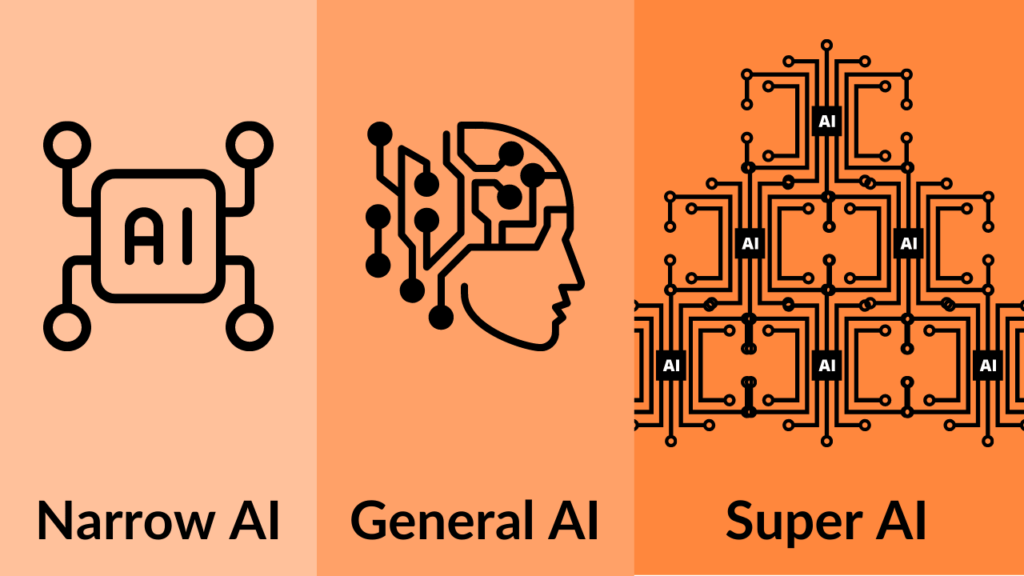Podcast: Play in new window | Download
Summary:
In this week’s episode of “The Property Management Show,” Marie and Brittany sit down with Faizan Ali Khan, the CEO and Founder of LetHub, to learn more about what artificial intelligence (AI) really is, and what property managers should know about its applications in their industry.
Key Takeaways:
- Artificial Intelligence can automate communication between renters and landlords and property managers.
- There are three main types of AI – Narrow, General and Super, and we are still developing General AI.
- AI can be used by property managers to answer common questions from renters, automatically send emails, save money on utility bills, process maintenance requests and more.
- There are two ways that AI can learn: Supervised and Self-Learning. Property managers are encouraged to use Supervised AI, in which their AI system has been trained by a company like LetHub.
- Implementing AI doesn’t have to remove the “human touch” from property management – it is meant to streamline operations and save time on monotonous tasks.
- If you’re a property manager interested in integrating AI, do your research to know what kind of AI you are signing up for and how much it will actually save you time.
Transcript:
Marie Liamzon-Tepman (00:00):
Welcome to The Property Management Show brought to you by Fourandhalf Marketing Agency for Property Managers.
Brittany Stephens (00:05):
Today’s topic is artificial intelligence and how to properly use it in the world of property management. Our guest is going to go over some key concepts of AI so that property managers can make better technology decisions for their business.
Marie Liamzon-Tepman (00:21):
That guest is none other than Faizan Khan, who is the CEO and founder of LetHub, an AI platform for property management companies. Happy listening!
Meet Your Artificial Intelligence Guide, Faizan Ali Khan
Marie Liamzon-Tepman (00:38):
Faizan, thank you so much for joining us on the podcast today. Since it’s your first time ever on the show, can you please let our audience know who you are and what’s your relationship to the property management industry?
Faizan Khan (00:53):
Yeah, thanks for giving me the time and the opportunity to share what we’re doing. So I’m the founder at LetHub. Lethub is an AI communications platform for rental property managers that automates the communication between renters and landlords and property managers. So nobody has to pick up the phone and, you know, pre-qualify people and book tours. So that’s all handled by River, which is our AI. And it’s in a constant learning phase where it improves with time, just like humans.
What is Artificial Intelligence?

Brittany Stephens (01:27):
Awesome. So to start off, could you define AI, define Artificial Intelligence for us common folk?
Faizan Khan (01:42):
Sure. So I think to put it in a nutshell, because it’s a very complex field and I guess the media portrays it in a very different way, anything that automates any kind of task that humans perform in a faster way or better way, that can be considered artificial intelligence.
Brittany Stephens (02:14):
So if we’re talking about different stages of AI, what are some of those?
Faizan Khan (02:20):
So again, it’s very complex. There are seven different different stages of AI, but to put it in simple terms, we can classify it in three stages. So there’s Narrow AI and then there’s General AI, and then there’s Super Intelligent.
Narrow AI is something that has very limited sort of memory and that can outperform humans in some robotic tasks. And then General AI, I would say is just your general intelligence which is not really good these days. We’re not there yet. It’s something that understands a lot of the things that we do in everyday life. So a domain-specific AI would only understand a few things that they’re really good with. General AI just understands everything because it learns really fast.
And then the last one is Super Intelligence AI, that’s the AI that produces other AI’s. The bot that can make other bots.
Marie Liamzon-Tepman (03:39):
That’s gonna take over the world. Yeah.
Faizan Khan (03:42):
If you’ve seen the Avenger movies, that’s what we’re talking about.
How Can Artificial Intelligence Be Used In The Property Management Industry?
 Marie Liamzon-Tepman (03:47):
Marie Liamzon-Tepman (03:47):
And so given that General AI is where we are right now, and even then we haven’t even mastered it, right? What kinds of applications of artificial intelligence can we see in the property management industry?
Faizan Khan (04:01):
Yeah, no, that’s a good question. Any task that you can automate, that can definitely be done by AI because if you can train a machine to do a certain job, then you can implement AI in that piece. So an example is, if you don’t really want to communicate with renters and there’s a pattern to you communicating with renters, that pattern can be picked up by the AI and then sort of mimic what you would do. It’s as simple as a bot or it could be a smarter bot that could respond to inquiries or share information that you would.
There’s different levels to it. So another example would be, you can tell people to do a few steps, like complete a few steps, and then, and that’s like a simple bot, but then you can also build something conversational that actually understands how you type or how you chat with people. It learns your style. So that’s one – Yeah. So it’s like when it learns your stuff –
Marie Liamzon-Tepman (05:30):
So if I’m a slow typer, it can mimic like that slow typing.
Brittany Stephens (05:35):
Or if you say ‘like’ every five minutes, like me, it’s gonna probably put a bunch of ‘likes’ and a bunch of ‘hella’s’ in there somewhere and smiley faces, if you’re a super smiley face writer.
A concept like this is really intriguing to me when I think of not necessarily like the day to day operations of a property management business, but if you can have a BDM or a salesperson, not having to write their own emails to follow up with a person, like, how cool is that? Or if you have a chat box on your website that can act like it is a sales person, but be AI that would obviously save time, but give you more time to spend on other things like face to face things.
[If you’d like to learn more about property management and automation, check out our podcast episode with Propertyware’s Inaas Arabi.]
AI, Emails and Utility Bills
Faizan Khan (06:23):
Yeah. Yeah. And I think that’s what we’re trying to do as well, right? So we’re trying to cut that time. If you look at an average property management shop, they get hundreds of emails, right? So if they have 10 vacant properties on average, they get 10 to 15 emails a day. So their leasing team has 150, 200 emails in their inbox. And then if they spend a couple of minutes for every email, they’re spending like hours writing emails.
Once someone has found the place, and they’ve moved in, I think a lot of companies are doing it, but AI can also be used in terms of lowering your bills, right. Your utility bills, whether it’s your internet bills or any kind of other things that you think are too high, AI can sort of only switch it on and off when you’re using it just by learning by your habits.
AI and Chatbots
 Marie Liamzon-Tepman (07:32):
Marie Liamzon-Tepman (07:32):
When we talk about artificial intelligence for property management the first thing that comes to mind in terms of application would be the chat bot. Right? Cause we’ve seen a surge of all these chat bots in the industry. And so you’re saying that like, yeah, that’s definitely a low hanging fruit, but then there are other applications of AI within the industry.
Faizan Khan (07:55):
Yeah. Yeah. I think in terms of chatbots, there’s different types. We’re talking about rule-based chatbots that are just, you feed them a bunch of information. It’s just like a form, but in a chat format. And then there’s a bunch of hybrid – I don’t know if hybrid is the right word, but that’s the word that comes to my mind – there’s a few hybrid bots that use both a combination of a rule-based approach and some pre-made questions that can be answered. So I can go inside and feed some questions into the bot that I think renters would ask. And then there’s the true AI approach – which is what we’re trying to do with River, our AI – whenever there’s an opportunity to learn about what people are asking, it will be taught to the AI in a very supervised fashion.
So in simple terms, what that means is if I say, “Are pets allowed?” Or something like that. And then, you know, there’s a response, “No pets are not allowed in this apartment building” or whatever. But then I, as a human, I’ll just say, “Hey, well, a small dog, be okay?” Like, you know, just to see if it would respond. Then the second question is based on the first question, which is called context building.
So you as a human would understand that, but a dumb bot or a rule-based bot will not understand that. But a bot that is built on AI would understand that the next statement is based on the previous question. It will learn with time.
It would understand the difference between a discount and an offer, it would understand any kind of marketing material that you’re trying to push so that it can push it to people.
It would understand differences between different synonyms. Sometimes, you know, when you type something wrong on Google, it says, “Do you mean..” You know, when it says that, the reason it says that is because it knows that this type of mistake is done by other humans as well, and those humans clicked on this particular link, they meant this thing. The more renters interact with it, the better it gets, the better it will respond and improve with time.
Marie Liamzon-Tepman (10:58):
So basically there are two layers that you’re talking about, right. The first is like, you can automate the question and answer portion of communication with renters. So if they ask legit the question, “Are pets allowed in this address?” A simple bot you can automate the answer to, you know, if it says anywhere “pets allowed,” then the bot knows to say, “No pets allowed” or like, “Yes, pets are allowed up to like this weight,”
Brittany Stephens (11:25):
Almost like a script.
Brittany Stephens (11:26):
Yeah. But the second layer is – so that automation is just like the base layer, right? And then the second layer is if you have a machine learning component, if I were to ask the question as like, “I have a Pitbull, is that cool?”
Faizan Khan (11:44):
Yeah.
Marie Liamzon-Tepman (11:46):
An automated like question and answer technology wouldn’t understand them asking about a pet ’cause I never said “pet”, but machine-learning type of technology would understand like, “Oh, the context is like, this person has a pet and wants to know if pets are allowed.”
Who Feeds The Property Management Data to the AI?
 So if you’re saying that it’s like learning, right, from a set of data, who’s in charge of pulling that data? Do you have to feed it the data or do you, you know, put it in your software and it learns everything you’ve ever sent in the past five years? Like, how does it work?
So if you’re saying that it’s like learning, right, from a set of data, who’s in charge of pulling that data? Do you have to feed it the data or do you, you know, put it in your software and it learns everything you’ve ever sent in the past five years? Like, how does it work?
Faizan Khan (12:32):
There’s two ways: there’s supervised learning, and then there’s self-learning. Just like how Tesla is, Tesla is self-learning, right? So if you’re driving a Tesla, if you crash it, it’s going to learn that next time I’m not gonna do that. So that’s, self-learning.
Supervised learning is, I feed the data to the AI and I would either crowdsource it or my team would do it. We will tell the the AI that, yes, this is a particular object or a question, or it means this.
Let’s say, if you look at a guitar and a ukulele, but the AI cannot understand what’s a guitar because it pretty much looks the same, it’s the size that’s different. So the AI would ask me, “Hey, is this a guitar? Yes or no?” I’ll say no. “Is this a guitar?” Yes. So when I say yes, it will associate that “yes” with that particular instrument, if that makes sense.
Brittany Stephens (13:37):
Interesting. The self-learning versus what did you call it? Controlled learning, supervised learning. I feel like, especially in our industry, I mean, it sounds like supervised learning at least right now is the way to go especially for property management. Cause when it comes to fair housing and things like that, I feel like if you have self learning AI, it could just learn to give the answers that people want. Or I don’t know, it could go rogue, anything like that. I feel like the self-learning would be super beneficial. It’s like, “is this a pet? Is this a dog that’s allowed?” Like, I really liked that.
Faizan Khan (14:25):
Yeah. Yeah. And I think to your point about pre-qualification, it has to be very customized. We could have built it in a way where we just don’t let you put the questions in. We’ll let the AI ask the questions. But the problem with that is if it’s self-learning, then it will only ask questions that it thinks helps you make decisions better. And then it will disqualify people who it thinks did not qualify in the past. If you know what I mean, like it will recognize patterns that you only like certain kind of people. And then the human rights problem comes in and it will only qualify people who are within that criteria. And that is scary. And that’s why there’s a human element involved where you set your criteria first. You just tell the AI to ask these questions and don’t let the AI ask questions because it will ask some strange questions. Yeah, yeah.
Marie Liamzon-Tepman (15:43):
Yeah. Especially when we’re talking about law, right. Especially for fair housing, fair housing regulation. Fair housing law, it’s created by humans, right? And so a lot of times there are sections there that’s kind of up to interpretation and as human beings, there’s this concept of following the spirit of the law. And it’s kind of scary to trust a machine to know what the spirit of the law is. I’m not sure if we’re there yet. So I feel like it makes sense for the property management industry, if property managers are using artificial intelligence they need to make sure that the owners or the operators are holding the reins of their machine.
And so wouldn’t you say that on one hand you are automating things to make things better, but the fact that someone always has to have their hands on the reins is still work. So like, doesn’t it just cancel out? Cause now this person who used to be able to just answer the questions that the renters ask and everything, now has to learn a new way of working, which is figuring out how to interact with this machine and make sure it’s not saying weird stuff to the renters?
Faizan Khan (17:07):
I don’t know about other other ones, but ours is very simple. Like you just set it and you forget it. There’s no involvement of the staff to teach anything to it. It’s already trained. So if there’s any involvement of training in AI, I would advise people to have a deep look into it, ’cause it’s not AI then.
Brittany Stephens (17:36):
If we’re talking about AI and supervised learning, it wouldn’t be like, if we’re talking about a property management company, it’s not like the property manager or the leasing agent or whoever, is supervising that learning. They’re creating, they might provide the list of initial criteria, but the company that is the AI is the one that’s going to be controlling and supervising that a little bit more. I think that’s kind of what you’re referring to Marie, right?
Marie Liamzon-Tepman (18:05):
Yeah.
Faizan Khan (18:06):
Yeah. Essentially. Yes. Because if you have to do the job, then why are you like – you’re essentially crowdsourcing – like, it doesn’t make sense for a property company to train it. It has to come pre-trained.
Brittany Stephens (18:21):
So you need to partner with a company that understands the property management industry that can help pre-train their machine so you don’t have to worry about all of – I mean, that makes sense.
Does Adding Artificial Intelligence Remove the “Human Touch” from Property Management?
 Marie Liamzon-Tepman (18:35):
Marie Liamzon-Tepman (18:35):
If a property management company were to use artificial intelligence for the the process of selecting tenants, how does it work? Like when does the ‘gut feel’ come? Does it just pre-screen and give the human being a short list of the pre-qualified renters and then the property management company team members never see the rest of the applications? At what point does the human element come back in?
Cause right now in a traditional property management company, it’s all about the human connection. And so when you insert the machine, like how much of it can be taken over by a machine and how much of it stays through the human being?
Faizan Khan (19:25):
Right. I think what the AI should do is speed up the process. Any AI that can speed up the process of questions, booking a tour and get people to the door, that’s what it should be doing. The goal is to take in as many leads as you can, pre-qualify them, and get the best people to the door.
Now, the ones who get disqualified, the ones that you were talking about, that are never seen, I think they should get to see them. Because every person who has a certain credit score or a certain budget, or if they like pets and, you know, they couldn’t find that there, those people should be kept in your database, and then be contacted whenever something matching their criteria is available.
And I think that’s the part where it’s going to be easily automated without AI. We don’t even need AI for that. If you have a database and if you have a matching criteria, and if you have some sort of tech person on your team, ask them to build a matching platform and send out an email saying, “Hey, we have a new apartment available. It has pets and it’s within your budget, please book a tour.”
So again, we’re not taking or anything, we’re speeding up the process. And a lot of these leads that are after hours or on weekends and when you don’t have staff or you have to hire a virtual assistant, AI can definitely do that.
How AI Has Been Misrepresented
Brittany Stephens (21:06):
What about, you know, it obviously depends on your communication style or maybe the generation you’re a part of or maybe the technology itself, but I don’t like talking to people on the phone. I definitely just want to submit a form or fill out whatever. But then you have these frustrations with chat boxes or automated phone systems, things like that, that probably give AI a bad rep. There are other platforms out there that use the system. And like you talked about earlier they don’t understand the questions that you’re asking. And I feel like that’s a lot of people’s experience with these types of automations. So how do we move on from that type of perception to actually get people excited about these types of tools?
Faizan Khan (22:11):
Yeah. I think in the next five years, you’ll see a lot of improvement in this sector. The unfortunate thing about AI is that, not just in property management, but in other industries, there was never an actual true AI built by startups. Maybe I shouldn’t say never, but very unlikely. A lot of it is like tech jargon or like some kind of jargon to get customers excited. And then once they signed up, they were disappointed. And that is what’s harming companies who are actually working on making that thing happen. And that’s just unfortunate.
Brittany Stephens (23:08):
It’s misrepresentation in the past a little bit, like as a marketing tactic, probably like, “Oh, we have AI,” but really they’re just calling it AI to make it seem more appealing.
 Faizan Khan (23:20):
Faizan Khan (23:20):
Yeah. Yeah. Because AI is like, it’s so vast that you can implement a simple step in your code, in your tech stack, and you can call it AI because there’s some small element of AI that is involved. I can give you an example, if type a sentence saying “Hey, can I have I can have a pizza with fries.” A decent coder can train the engine or any engine to understand that someone’s asking for a pizza with fries. And then they can call it AI. But what happens is, a smart AI would be, “Do you want pizza with fries as a side, or fries on top?”
Brittany Stephens (24:26):
Right.
Faizan Khan (24:26):
So now comes the part where like, okay, now we’re talking. Right? Same thing with any other thing. I’m just, I was just trying to give you an example.
Brittany Stephens (24:39):
That totally makes sense. Cause it’s going back to what you said about making it a conversation instead of just like an auto response, because a lot of these systems do kind of feel like a copied and pasted response that might not really be the answer I was looking for, or the guidance I was looking for. So to have it provide a response actually in context.
Faizan Khan (25:07):
Yeah. Very few AI’s have actually passed the Turing tests. What that means is that you will be unable to tell if it’s a human or a bot. We’re not there yet. So it’s always going to feel a bit robotic. I’ll be honest with you, even River feels robotic, but it does the job, right. As long as it does the job and answers those questions, it’s good enough for the property management industry.
AI: The Future of Property Management Tech
 Marie Liamzon-Tepman (25:32):
Marie Liamzon-Tepman (25:32):
Yeah. It’s an exciting time for the property management industry, because there is a lot of attention now in this industry that used to be kind of like set aside. Right? And so now there’s like new technologies coming in, you know, and AI is here, it’s not there yet, but it is starting. And so to your point, right? Like, because AI is so vast it’s hard to wrap your head around it, which is why we have you here to kind of help our listeners and help us understand what does make sense in terms of AI for the industry and like you mentioned, it’s like a life cycle, there’s infancy, then preteen, you know, adults and so on, so forth. And like you said, you can call a thing AI but it could be like the embryo type of AI versus, you know, preteen AI.
I feel like the lesson here is that if a property management company owner is looking for some kind of AI solution for the company to really do their research, right? And make sure they know what they’re going to get, and that actually matches the need for the company.
Brittany Stephens (26:39):
Yeah. And understand that it’s not going to be perfect or 100%.
Faizan Khan (26:44):
I mean, yeah. At the end of the day, if it does the job, whether it’s AI or not AI, if it’s saving your team four hours a day, and if it’s driving those big vacancy rates down, you should definitely look into it rather than staying away. Like try it, test it, see if it works, if it doesn’t, it doesn’t, but there’s different ways to make it work. And I think this is going to be the new wave of technology in property management.
[To learn more about property management technology innovations, check out our podcast episode with Home365.]
Artificial Intelligence & Property Management Maintenance
Marie Liamzon-Tepman (27:18):
You know maintenance is another big area in property management that could benefit from implementation of AI.
Faizan Khan (27:27):
But you cannot give it solely to AI, very similar to the leasing process. Right? There’s still a human element. Cause I can totally see a situation where if it’s all text based and the tenant goes like, “Hey, my heater’s broken.” And the AI is like, let me send, you know, the HVAC person or the heating person, and then turns out it’s the water heater,
Faizan Khan (27:49):
The water heater – yeah.
Marie Liamzon-Tepman (27:53):
But a more intelligent kind of system would ask follow up questions like, “Hey, is it your heating, like air? Or is it your water?”
Faizan Khan (28:03):
And you know, all that information needs to be learned by the AI. And it’s going to take at least a million to 2 million data points. What I mean is that you need to train it, to understand those things. And 2 million data points takes a lot of time. It’s going to take some time for someone to do it. Maybe we will be the ones to do it. I don’t know. But if it’s a high demand and people keep emailing me, then I’m happy to dedicate a team member to work on that one. Yeah.
Advice From Faizan for Property Managers Interested in Artificial Intelligence
 Brittany Stephens (28:40):
Brittany Stephens (28:40):
Well Faizan do you have any other like final pieces of information that you think are really important to mention that you want to share with our viewers, listeners?
Faizan Khan (28:52):
Just my general advice to people is that don’t be scared of AI. I think the media has overplayed it. There’s multiple different applications of AI and and it’s not taking over anything. At the end of the day, it’s helping you be better at your business. It’s a simple tool that works like a human would do and it learns like a human does.
So yeah, I would recommend people, you know, reading more about it and what sort of companies are out there. They’re trying to help you be more efficient and be more profitable. Right? At the end of the day, everyone wants to be profitable and keep their owners happy. And there’s tons of smarter ways to do that rather than just doing it manually. Yeah. That’s my message to people.
Brittany Stephens (29:49):
Well, thank you so much for joining us. Marie, did you have anything else that you wanted to say?
Marie Liamzon-Tepman (29:54):
No. I’m good. I think I’ve asked all my questions.
Faizan Khan (30:01):
All right. Thank you. Thanks for your time. I appreciate you taking the time and the amazing questions.
If you have any questions about this topic or about property management marketing in general, give us a call.
The Property Management Show is brought to you by Fourandhalf. We help property managers strategize and implement marketing plans that bring in owner leads. Click the image below to get a free marketing assessment and find out how to start getting better clients into your portfolio.

